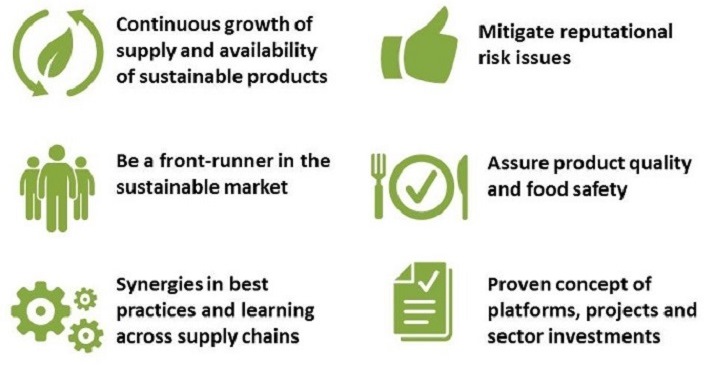Over the last 5 years, IDH developed sector covenants and platforms with defined sustainable sourcing targets by 2020/2025. The covenants are based on individual company commitment, and each covenant includes a step-wise approach to source and import sustainable products over the coming years.
The Floriculture Sustainability Initiative (FSI) is a international public private sector initiative aiming to create mainstream sustainability in the floriculture sector by building on existing initiatives and activities.
The Sustainability Initiative Fruits and Vegetables (SIFAV) is a pan-European initiative with retailers, brands, traders and civil society organizations in seven European countries. SIFAV partners aim to make imports of fruits and vegetables from Africa, Asia and South America 100% sustainable in 2020.
Sustainable Nut Initiative (SNI) is a foundation open for all organizations working within the Nuts supply chain, with the objective to stimulate traceability and sustainability in the nut sector.
The Sustainable Spices Initiative (SSI) brings together leading multinational companies and NGOs with the aim of sustainably transforming the mainstream spices sector, thereby securing future sourcing and boosting economic growth in producing countries.
The Sustainability Initiative Fruits and Vegetables Processed (SIFAV-Processed) covenant has been formulated, and the first general assembly took place in November 2015. Seven companies have so far become signatories, while other ten companies have demonstrated interest to join.
The Sustainable Vanilla Initiative (SVI) aims to build a collaboration with local stakeholders, create and support ownership to maintain the quality of vanilla, increase livelihood of vanilla producers, support the professionalization of the sector and increase the supply of sustainably produced vanilla.
More on these initiatives can be found below.








